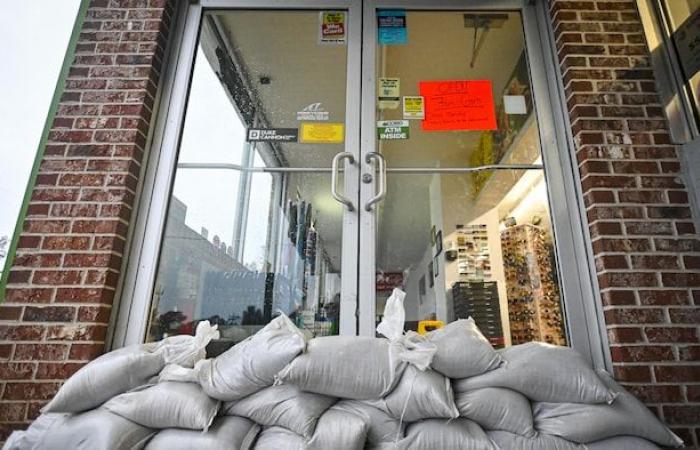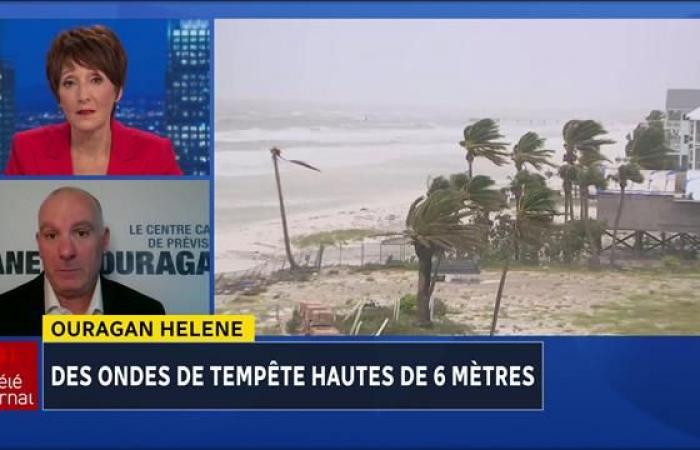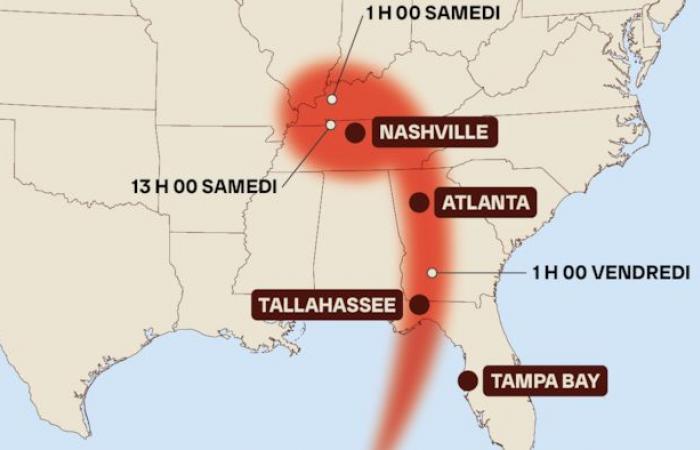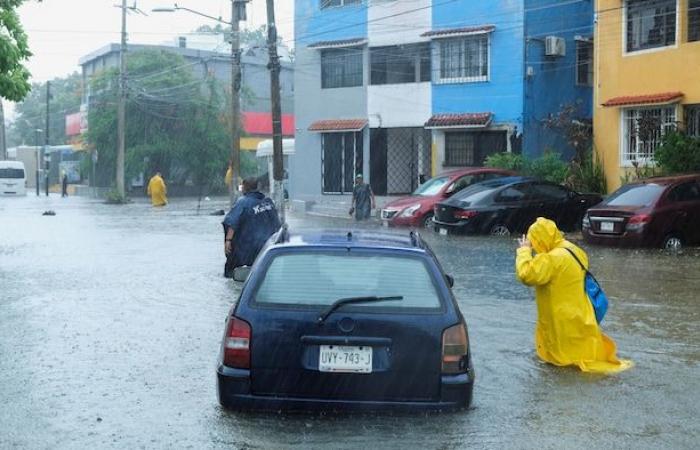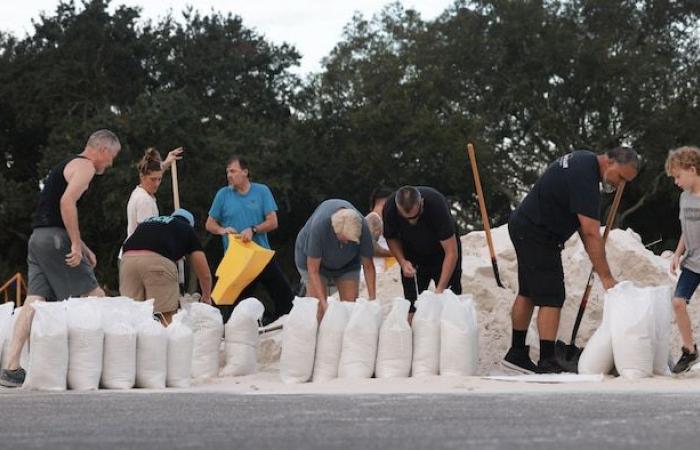Florida is preparing Thursday evening to see Hurricane Helene, classified as “extremely dangerous”, with gusts of rare violence, but also colossal quantities of water capable of causing “catastrophic” flooding.
With winds now blowing at 215 km/h, the hurricane has reached category 4 on a scale of 5, according to the American Hurricane Center (NHC).
It is expected to make landfall in the evening in northwest Florida, near the state capital, Tallahassee, which has around 200,000 inhabitants.
Open in full screen mode
Florida residents are preparing for the arrival of Hurricane Helene, which could make landfall Thursday evening with the intensity of a force majeure hurricane.
Photo: AFP / MIGUEL J. RODRIGUEZ CARRILLO
Helene is already dumping intense rains and the risk of marine submersion is of particular concern to the authorities. The rise in water levels could reach 6 meters in places on the coasts, the height of a two-story building.
This is a scenario that is impossible to survive
and which will be accompanied by waves destructive
capable of sweeping houses and moving cars, alerted Mike Brennan, the director of NHC.
On the coast near Tallahassee, many fled after protecting the windows of their homes with wooden planks, and most businesses closed, a journalist from theAFP.
No one has seen a storm of this magnitude
In Crawfordville, a small town located about thirty kilometers south of Tallahassee, Patrick Riickert also decided to ignore the alerts.
I’m not going anywhere. I stay here. I’m going to retreat
told theAFP this fifty-year-old, who has his grandchildren with him. I trust in my faith and that God will protect me.
Thursday evening, Florida Governor Ron DeSantis asked residents who could still do so to evacuate, and others to barricade themselves and not go out until the next morning.
We cannot control the force of the hurricane or its trajectory. But what you can do is put all the odds in your favor to get out of there safely.
In the Tallahassee area, no one has seen a storm of this magnitude in recent memory
he insisted.
Tens of millions of Americans on alert
Georgia, Tennessee and South Carolina will also feel the effects of the hurricane. Tens of millions of Americans are under weather alerts.
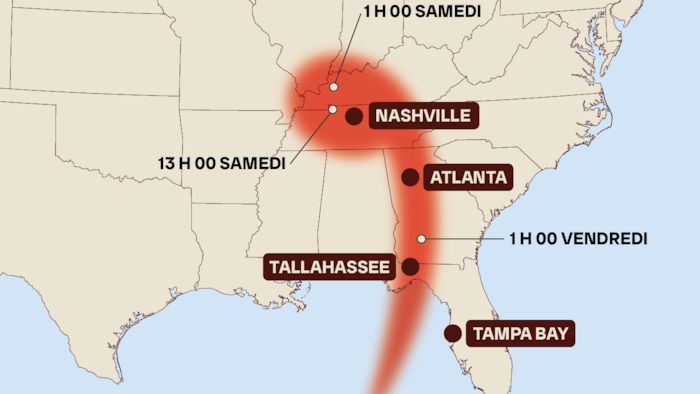
Open in full screen mode
The states of Georgia and South Carolina will also be affected.
Photo: Radio-Canada / Emile Lord Ayotte
Inland, authorities fear flash floods linked to heavy rains, as well as possible mudslides or landslides, particularly in the Appalachians.
It will be one of the most significant western weather events of modern times
of South Carolina, alerted the weather services of that state.
In Florida, a state of emergency has been imposed in almost the entire territory. Some 3,500 National Guard troops have been mobilized and an additional 2,000 are available if needed, according to the governor.
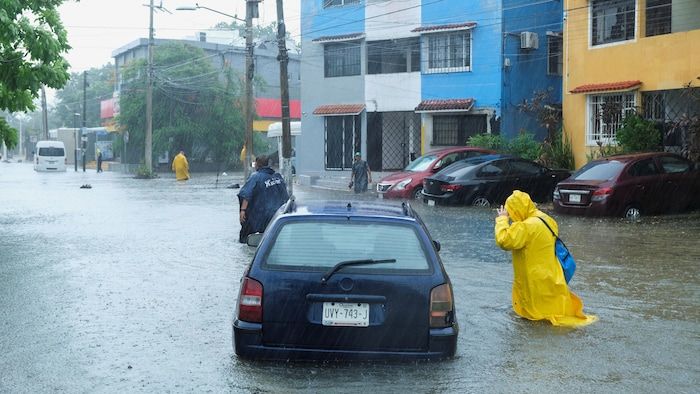
Open in full screen mode
Storm Helene, which became a hurricane on Wednesday, dumped torrential rains on Cuba, but also in Cancun, Mexico.
Photo: Reuters / Paola Chiomante
Several airports, including Tallahassee and Tampa, are closed.
Federal funds have been released, with personnel ready to help with search and rescue operations, restoring power or clearing roads.
There will be a lot of debris
warned Mr. DeSantis.
The particularity of Hurricane Helene is that it is particularly extensive. Its size actually one of the largest hurricanes over the Gulf of Mexico this century
noted expert Michael Lowry.
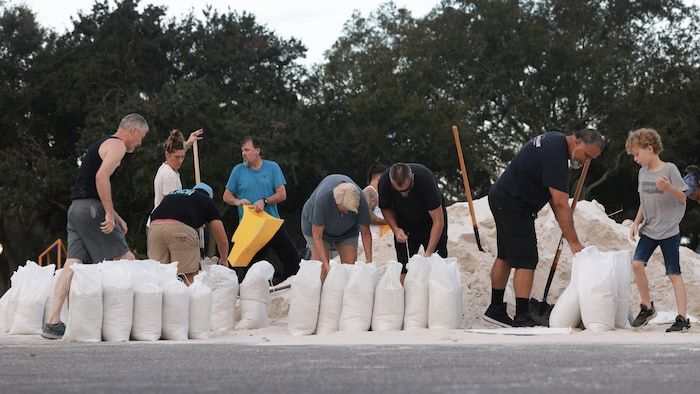
Open in full screen mode
In Florida, residents are preparing for Helene’s arrival.
Photo: Getty Images / Joe Raedle
An intense hurricane season
Although several hurricanes have already hit the United States this year, including Béryl and Debby, they were less powerful than Helene when they made landfall.
The American Oceanic and Atmospheric Observation Agency (NOAA) had warned that this year’s hurricane season – which runs from the beginning of June to the end of November – was expected to be particularly intense, in particular due to the heat of the oceans, which fuels these storms.
By warming sea waters, climate change makes them more likely to intensify rapidly and increases the risk of more powerful hurricanes, scientists say.

